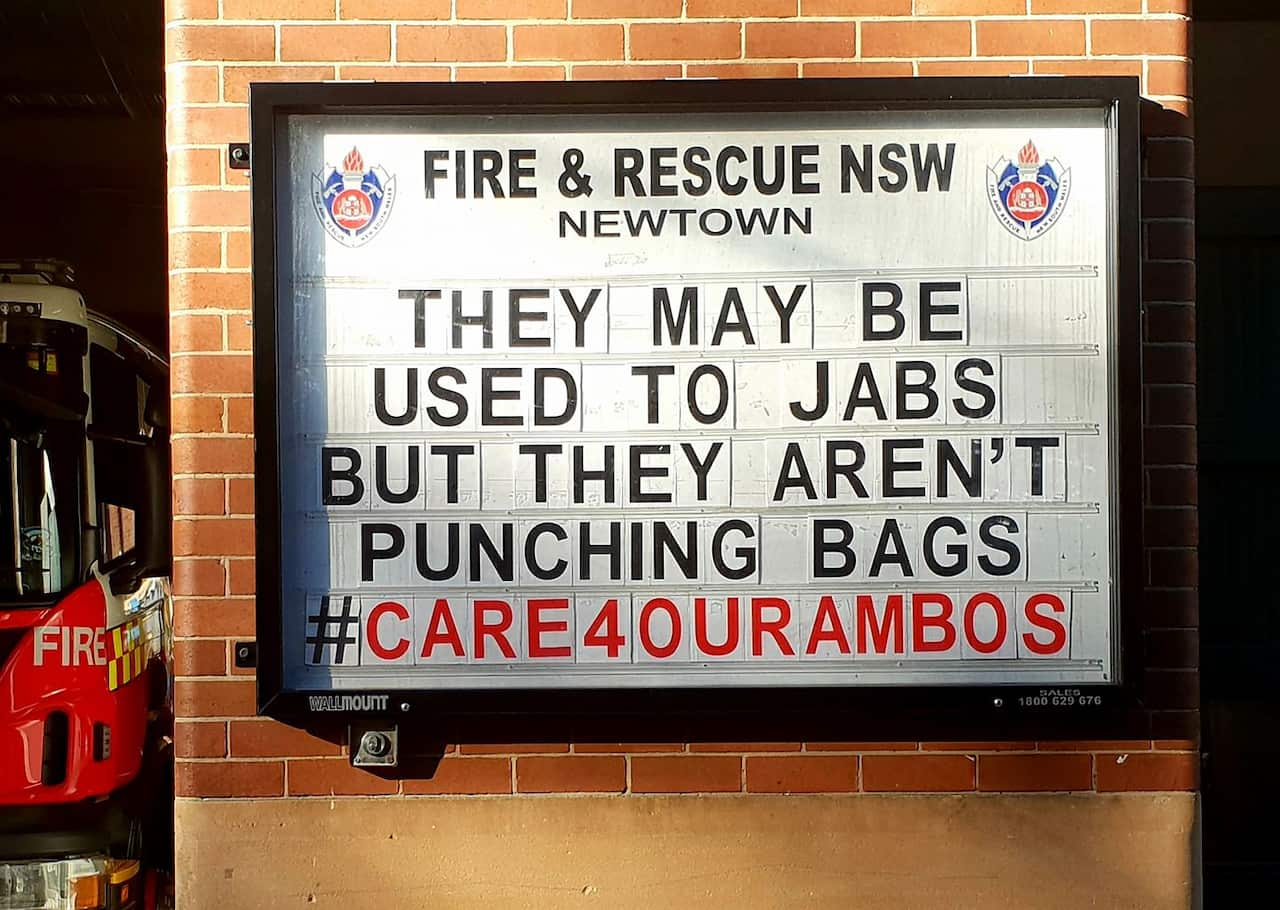Video above: Paramedic Peter Davidson (who did not write this article) takes us out on the job. Full episode about the people who are first on the scene, available on SBS On Demand.
A 000-caller stated that his wife was short of breath and needed an ambulance. He also told the call-taker that he intended to hurt the paramedics when they arrived. This deranged man was threatening to hurt me for trying to save his wife's life. It’s for this reason that we often wait outside a patient’s address for police to arrive before we go in to help.
Unfortunately, we arrived before the police.
“If you don’t come inside and help me, you’re dead!”
He told the call-taker I'd be hurt for helping. Now he's telling me he'll kill me if I don't come in.
I went in. He grabbed me. It was bloody frightening.
On average, three paramedics are assaulted every week. We're punched, kicked, sworn at and spat on. We're held at knife point. I've known officers who've had bones broken so badly they've had to retire. We've become a blue-uniformed bullseye; targeted by those affected by drugs and alcohol. Or worse, we’re set upon by those who don’t have any form of chemical impairment and simply can’t handle emotional distress without resorting to threats and acts of violence.
I think it's fair to say most of us are at the point now where we don’t even bother reporting violence because the amount of paperwork, police statements and drawn-out court appearances make it seem hardly worth the effort when offenders often walk free without penalty. Three assaults per week? Imagine how much worse that number would be if all cases of violence against us got reported.

Around six months prior to this incident, I was treating an intoxicated patient in the back of the ambulance who had just crashed his car into a pole. He began violently thrashing his arms, striking me multiple times in the chest and arm, as I was simply trying to reassure him and check his blood pressure.
As a school kid growing up in Australia, I learnt about the reasons why we call 000, the heroic acts that those who show up perform, and how this makes them some of our most respected professionals. I naively thought everyone else was raised the same. Now I find myself waiting around the corner from the address of a 000 call at least twice a week with no intention of going any closer until the police arrive to accompany us for our own safety.
We don’t have weapons. We don’t have body cameras. Often, we don’t even have size or strength on our side. But why should we? We’re only there to help. It’s difficult to imagine those in “the most trusted profession” carrying a taser, OC spray and a glock. But sooner or later, without any sort of protection, one of us is going to lose our lives. Is that what it’s going to take for any sort of change?
Don’t think all of us ambos are complete pessimists, though. Much of the time this job provides some of the most heart-warming moments that you couldn’t get in any other profession. And that’s why we do it. There are very few other vocations where you can bring a child into the world and watch it take its first breath, or comfort a 100-year-old whose lived an extraordinary life as they take their last.
But if you’re going to threaten to take one of our workmate’s lives, or mine, you’re delaying the help that you or your family may need. Don’t forget we have families and lives to live, too, and we want to help you. If you threaten us, walking away from your violent behaviour will be the easiest decision we make that day.
Insight wants to hear from you. If you have a personal story to share – especially on a newsworthy issue – we can help you craft a compelling first-person article like the one you’ve just read. Pitch an idea or send a piece you’ve already written to mystory@sbs.com.au
Insight is Australia's leading forum for debate and powerful first-person stories offering a unique perspective on the way we live. Read more about Insight
Have a story or comment? Contact Us


